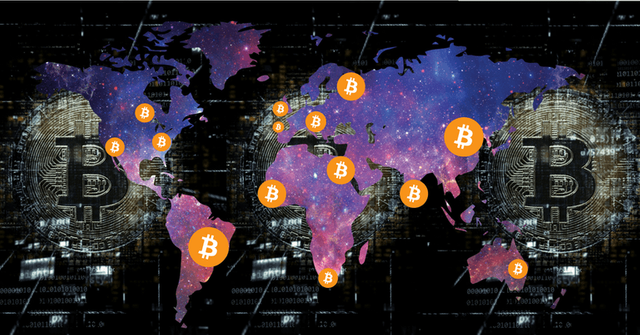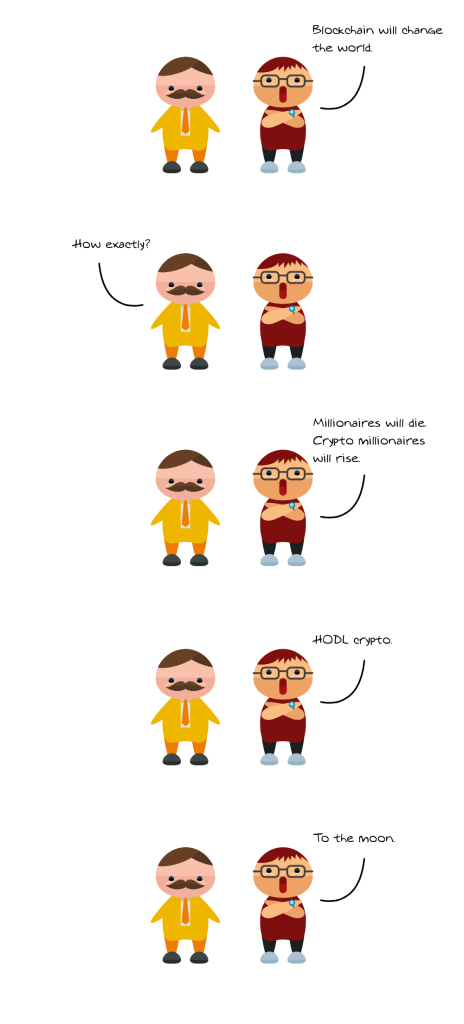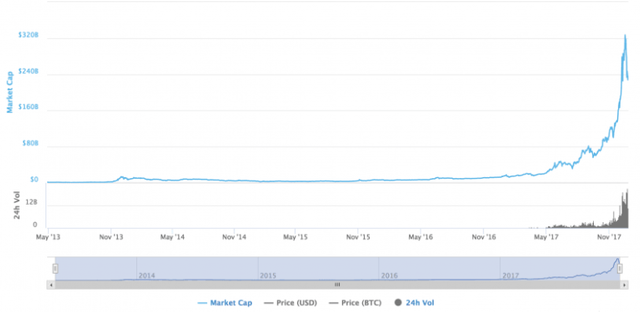Why the prices of crypto currency differ in different countries

Should not crypto currencies be global single currencies?
During the last six months of my active efforts to write articles on blockade and crypto-currencies, people constantly ask me: "Why is the price of bitcoins different from country to country?" Does this mean that I can earn money by arbitration? "
The short answer to this question is yes. Of course, this will entail a lot of work related, among other things, to the proper provision of reports on your transactions to the tax departments of your country. But in fact arbitration is possible, because different countries buy and sell bitcoins at different prices. But why does this happen?
Because bitcoin has no international price.
And the reason for this is that people do not seem to have reached a consensus on what bitkoyin really is.
Destination bitcoin
"When you dance, your goal is not not to get to a certain place on the floor. It's about enjoying every step along the way. "- Wayne Dyer ( Wayne Dyer )
They say that "value is always determined by perception" - and in the case of bitkoyn it is more true than with anything. In the absence of a widely accepted scenario of bitcoin use, everyone has a reason to buy bitcoins. For some, the reason is the conviction that the blocking technology that is at the heart of bitcoin will someday reach its stellar hour. For others, the reason is that bitcoin, which they will buy now, will someday be used everyday. And for another group (perhaps the biggest one), the reason is greed; they want to buy in the hope of reselling at a higher price, quickly earning without much difficulty.
With such diverse expectations regarding the future of bitcoins, it is difficult to reach a consensus on the real purpose of bitcoins, and therefore its value.
No one knows. And while all think

- The blockade will change the world
- How exactly?
- Millionaires will die, there will be crypto-currency millionaires
- Keep the Crypto Currency
- Until its price flies to the moon
By itself, the speculative nature of the market allows suppliers of bitcoins to sell them at a price that the buyer is willing to pay. For example, on average, in India, bitcoins are sold with a 20 percent premium compared to the US market. This is not all, usually in India, the difference between the price of buying and selling (spread) is more than $ 1000.
And people still buy. Why? Well, because they really do not have a choice if they want to buy a crypto currency.
By the way, I'm running a weekly newsletter called "Last Week in the World of Crypto" , which is sent by e-mail every Monday and contains news about everything that happened in the crypt space over the past week.
Basic Economy in Action
"The study of the economy usually shows that the best time to buy something is last year." - Marty Allen ( Marty Allen )
In some parts of the world, bitcoins are usually bought from a bitlock vendor, rather than peer-to-peer (P2P) exchanges. P2P exchanges operate on a platform that connects the buyer to the seller. Then the Platform receives a small commission for establishing such a connection. However, the supplier is a business that has a large supply of bitcoins and a large supply of fiat money. The buyer can buy bitcoins for fiat money at predefined prices set by the supplier.
Consider a market where two apple vendors work. Each of them has its own stocks of apples and its own demand in the market. Suppose that both suppliers have a stock of 100 apples, but at the same time in the purchase queue the first supplier expects 100 people, and only 30 people are waiting in line to buy from the second supplier; in this situation, the first supplier can sell apples at a higher price.
In this scenario, 100 people in line at the first supplier will eventually find out about the second supplier on the market and instead of waiting in line, some will go to the second supplier to buy the same apples. With this increase in demand, the second supplier will raise prices, and eventually the businesses of the two suppliers will come to equilibrium.
The reason for this is that both suppliers compete with each other in the same market, and both will have the same demand and the same prices. If a third supplier appears, but in another country, it will not be affected by the market conditions of the first two suppliers.
Due to geographical and banking restrictions for buying bitcoats from a supplier in any country, you need to have a bank account and an identity card in this country. For example, in view of the fact that Indians can not buy bitcoats on Coinbase, they have to buy them from local suppliers. Therefore, the prices of local suppliers do not depend on international suppliers.
Equilibrium for isolated local suppliers
"Now balance is the exact opposite of disorder." - Rudolf Arnheim ( Rudolf Arnheim )
Sellers know that their buyers can not buy from sellers outside the country; so they compete only with local vendors. In addition, at any given time in the market there can be only a few local suppliers, because acquiring a huge reserve of bitcoins is not such an easy task.
That is why, while international suppliers do not start trading in a country like India, prices in the local market may be higher or lower than global prices. But this means that achieving parity of prices with international suppliers will not take much time. The only thing that should happen for this is the sale of one bitcoat supplier at a lower international price and its entry into the market of the current local suppliers.
The entire crypto currency market is completely new, and no one knows what is the purpose of bitcoins or what its future is. Everyone has his own version of the story about the future of the crypto-currency, in which he wants to believe. And this makes the following schedule not a breakout schedule, but a schedule of greed.

-The graph of the greed of investors
Do not misunderstand me; I do not deny blocking. I'm a big believer in blocking, crypto-currencies and a decentralized world. I'm just saying that not all the money that this market saw is "smart money". Many of them are greedy money that will one day disappear when people get the desired profit. When this happens, rational demand will make prices more or less the same throughout the world.
Until this day has come, let's continue our pleasant walk, making our way through chaos.